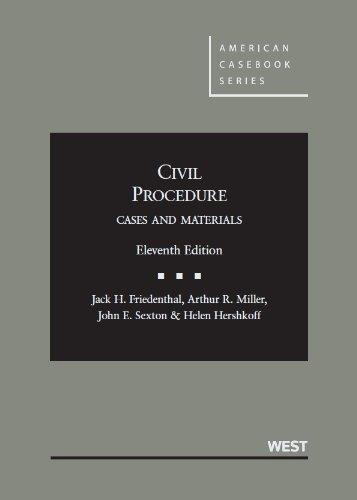11. Another requirement of due process is that the recipient of notice must be given adequate time...
Question:
11. Another requirement of due process is that the recipient of notice must be given adequate time to respond to the threatened adverse action. In ROLLER v. HOLLY, 176 U.S.
398, 20 S.Ct. 410, 44 L.Ed. 520 (1900), defendant was required to defend an action in Texas five days after he received service of process in Virginia. The Supreme Court held that the procedure violated the Due Process Clause. Would seven days be sufficient? Twenty days?
Twenty-one days? See Fed. R. Civ. P. 6(c). A seven-day notice period in an action that could result in eviction was found to violate due process under the Iowa Constitution in WAR EAGLE VILLAGE APARTMENTS v. PLUMMER, 775 N.W.2d 714 (Iowa 2009). Under the statute, notice was by certified mail and was considered complete upon mailing, without the requirement of a signed receipt; a hearing had to be set not later than seven days following the court order scheduling the hearing. The court found that the notice provision was “mere lip service”; deeming the notice received upon mailing “compel[led] a finding there is no real desire to inform a tenant” of the pending proceeding. Id. at 721. Moreover, the seven-day time frame between the court order setting the hearing and the hearing itself further reduced the possibility that the notice would be received. Would seven days be sufficient if notice were provided by regular mail? Would it be sufficient if the statute required a signed receipt?
Step by Step Answer:

Civil Procedure Cases And Materials
ISBN: 9780314280169
11th Edition
Authors: Jack Friedenthal, Arthur Miller, John Sexton, Helen Hershkoff






